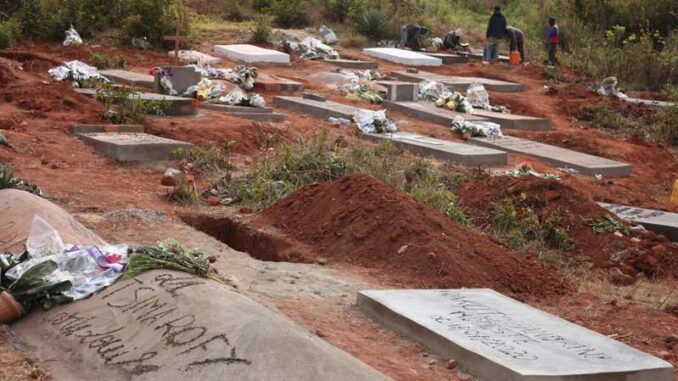
It is a short video that has not stopped turning on social networks since the weekend. It is about the burial of a young domestic worker in the cemetery for non-Muslims in Jubai, Saudi Arabia. The body of the young woman, wrapped in a simple white sheet, was buried with the help of a bulldozer. These images have aroused emotion and indignation among a population that is very respectful of funeral rites, and have once again reopened the debate on the migration – banned since 2013 – of these women workers to the Gulf countries.
The video, filmed by a Malagasy woman, lasts a little over a minute. On a piece of land that stretches as far as the eye can see, a construction machine is busy covering with earth a hole at the bottom of which the body has been laid. Several women dressed in black chadors can be seen filming the scene in tears. “Stop, stop, calm down, get up, there is a lot of dust”, says the woman filming to the collapsed woman next to her.
It is March 11. These Malagasy workers have just attended the burial of the body of their compatriot. The deceased, originally from Sambava, in the north of Madagascar, died last September, of a brutal death, when she had just broken her contract as a domestic worker. Due to lack of money, her family was unable to have her body repatriated to the Big Island.
After the video was broadcast, the reaction in the country was immediate. But for the UN agency of the International Labor Organization (ILO) and Noémie Razafimandimby, the national administrator of the Reframe project aimed at improving the framework for the recruitment of migrant workers, protesting is no longer enough: “It shocks society, but the problem remains the same: the girls continue to leave and to seek by all means, sometimes, to leave their village to join these countries. And it will remain the same as long as measures have not been taken to present alternatives to these women who now wish to migrate and hope to have a better life in these countries, as long as social partners and civil society organizations have not strengthened their interventions to raise awareness against human trafficking and clandestine recruitment, and as long as the media do not contribute to the perpetuation of reflection and objective information on this phenomenon. ”
Today, the Ministry of Foreign Affairs counts at least 500 female nationals in Saudi Arabia. Almost all of them are domestic workers. However, exact statistics do not exist. Since 2013, Madagascar has put in place a decree suspending the migration of these workers to so-called “high-risk” countries regularly singled out for the exploitation of foreign workers. But thanks to clandestine networks, many young women, poorly informed, manage to reach the Gulf countries to be hired there, making it impossible for the Malagasy state to count.
